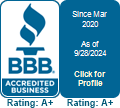
Understanding Personal Loans and Debt Consolidation Loans: Pros, Cons, and Key Differences
Managing debt is not just about making payments—it is smart financial choices that set you up for success. If you are struggling with multiple debts or need extra funds, you may consider a personal or a debt consolidation loan. But which one is the better choice? While both types of loans can provide financial relief, understanding the pros, cons, and key differences can help you make an informed decision.
Let’s break them down in simple terms.
What is a Personal Loan?
A personal loan is a lump sum you borrow from a bank, credit union, or online lender. You repay it in fixed monthly installments over a set period, typically with a fixed interest rate.
Pros of Personal Loans:
- Flexible Use: You can use it for anything—medical bills, home repairs, vacations, or even paying off other debts.
- No Collateral Required: Most personal loans are unsecured, meaning you do not need to put up an asset like your car or home.
- Fixed Interest Rates: Many personal loans offer fixed interest rates, making it easier to plan your payments.
- Predictable Monthly Payments: The repayment terms are structured, so you know what you owe monthly.
- Quick Approval Process: Many personal loans are approved within a few days, making them a fast financial solution.
Cons of Personal Loans:
- Higher Interest Rates: If you do not have excellent credit, you may get a higher interest rate when compared to other loans.
- Shorter Repayment Terms: Monthly payments can be high because loan terms are usually 2-7 years.
- Temptation to Borrow More: Since personal loans are flexible, some borrowers may use them irresponsibly, leading to more debt.
What is a Debt Consolidation Loan?
A debt consolidation loan is structured to help you combine multiple debts into one manageable loan with one monthly payment. Instead of juggling various credit cards or loans, you take out a single loan to pay them off.
Pros of Debt Consolidation Loans:
- Lower Interest Rates: Often comes with a lower interest rate when compared to high-interest credit cards.
- One Monthly Payment: Simplifies your finances by combining multiple debts into one easy payment.
- Can Improve Credit Score: Consistently making on-time payments can improve your credit score.
- Fixed Repayment Terms: You know exactly how long it will take to become debt-free.
- Less Stress and Confusion: Managing multiple debt payments can be overwhelming, and consolidating them into one loan reduces the hassle.
Cons of Debt Consolidation Loans:
- Requires Good Credit for Best Rates: If your credit score is low, you might not qualify for a favorable interest rate.
- Might Not Solve the Root Cause of Debt: If overspending is an issue, consolidating debt won’t help unless you adjust your financial habits.
- Potential for Longer Repayment Terms: A lower monthly payment might mean a longer repayment term, which could cost more interest over time.
- May Require Collateral: Some consolidation loans require you to secure the loan with an asset, like your home, which could be at risk if you fail to make payments.
Who Should Choose a Personal Loan?
A personal loan may be the right choice if:
- You need funds for various purposes, such as medical expenses, home repairs, or a big purchase.
- You have good credit and can secure a competitive interest rate.
- You prefer a structured repayment plan with fixed monthly payments.
- You do not want to put up collateral.
Who Should Choose a Debt Consolidation Loan?
A debt consolidation loan may be the right choice if:
- Your primary goal is to simplify debt payments and reduce interest costs.
- You have multiple high-interest debts (such as credit cards) that you want to pay off in one lump sum.
- You can qualify for a lower interest rate.
- You are committed to avoiding new debt while paying off the consolidation loan.
How to Decide Between the Two?
- Compare Interest Rates and Terms: Look at the APR (Annual Percentage Rate), repayment period, and any fees associated with each loan type.
- Assess Your Financial Habits: If you struggle with spending, a debt consolidation loan can help structure your payments, but without changing your habits, debt may build up again.
- Check Eligibility Requirements: Some lenders require a high credit score or collateral for better interest rates.
Wrap Up
Loans can be an effective tool for financial relief, but only if chosen wisely. Whether you opt for a personal or a debt consolidation loan, ensure you understand the terms, costs, and long-term impact. The key to financial success is not just borrowing—it is managing debt responsibly and making informed decisions.
Struggling with Debt? We Can Help!
If you are unsure which loan is right for you, our team at Royal Debt Relief can guide you toward the best solution. Contact us today for a free consultation and take control of your financial future!


